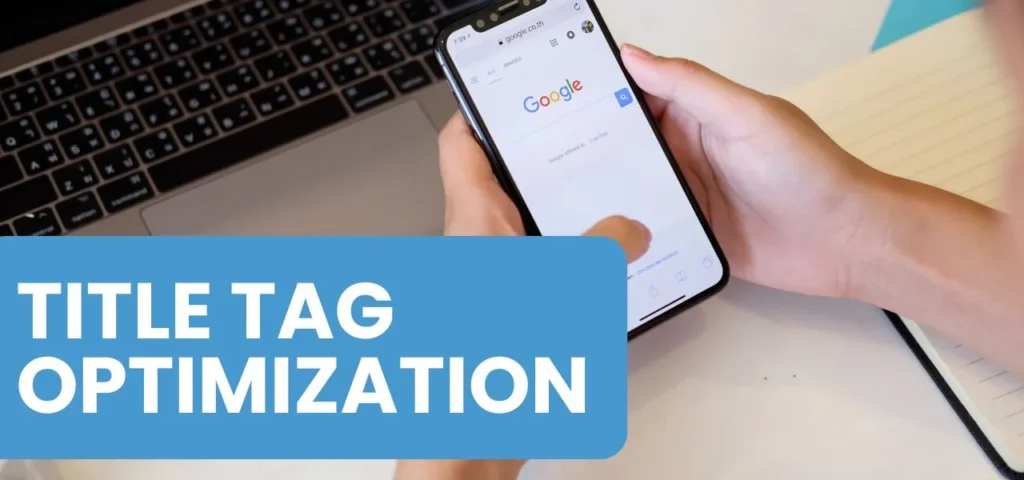When most accountants think of SEO, they skip over the simplest win available: their title tags.
Your title tag is the first impression a potential client gets when your page shows up on Google. It’s what they read before clicking. If you ignore it, you’re leaving traffic and leads on the table.
This guide walks you through how to write clear, targeted title tags that drive real results for your local accounting services with accounting SEO strategies.
1. Start With Your Primary Keyword
Always introduce your content with the keyword that best matches what someone is searching for. Google scans from left to right, and so do users. If your page is targeting “tax accountant in Chicago,” then that phrase should be at the very beginning of your title.
Example:
“Tax Accountant in Chicago | Smith & Co CPAs”
This signals immediately that your page is relevant. You waste the most important space in your title by putting your brand name first.
2. Match the User’s Search Intent
Not everyone searches for the same reason. Some are ready to hire. Others are just researching. Your title should match what they’re looking to do.
If you’re targeting people ready to act, include a call to action:
“Small Business CPA in Denver – Schedule a Free Consultation”
If the page is educational, like a blog post, make it informative.
“How to Choose the Right CPA for Your Business”
When your title aligns with what the user thinks, they’re more likely to click.
3. Use Value-Driven Words
Using strong, value-driven language in your title can improve your click-through rate (CTR). Think of words that show trust, urgency, or ease: “Certified,” “Trusted,” “Free,” “Fast,” “Expert.”
Example:
“Trusted CPA for Contractors in Houston – Free Tax Planning Call”
These types of words make your listing more compelling and increase the chances that a user will click on your site over another.
4. Keep It Within 60 Characters
Google usually shows only the first 60 characters of your title. If your title is longer than that, it may get cut off. This makes your message incomplete and less appealing.
A trimmed title might read:
“Bookkeeping Services for Small Businesses in Houst…”
Instead, aim to be concise.
“Small Biz Bookkeeping in Houston | CPA Experts”
Short, well-crafted titles are easier to read and make a stronger impression in search results.
5. Avoid Overloading With Keywords
While it’s important to include your main keyword, stuffing the title with too many variations or repeating the same term makes it look spammy and robotic.
Poor example:
“CPA, Accountant, Bookkeeper in Phoenix | Tax CPA Phoenix”
Better example:
“Tax CPA in Phoenix for Small Business Owners”
Stick to one main keyword and write naturally. Google is smart enough to understand what your page is about from your content.
6. Create Unique Titles for Every Page
Each page on your website should have its own unique title tag that clearly reflects the content on that page. Duplicate titles across multiple pages confuse search engines and can reduce your chances of ranking well.
For example:
Your homepage might use:
“Denver CPA Firm – Full-Service Accounting & Tax Planning”
Your services page might use:
“Small Business Accounting in Denver | Monthly Plans Available”
Each title should reflect that specific page’s purpose and focus.
7. Include Recency When Relevant
If your page is time-sensitive, such as tax updates or yearly guides, include the year or another freshness indicator in your title.
Example:
“Updated 2025 Tax Filing Guide for Freelancers”
“New Tax Deadlines for S-Corps in 2025 | CPA Overview”
This can improve clicks because users are drawn to content that appears current.
8. Use “How” or “What” for Informational Pages
If the page is answering a question or providing educational content, starting with a word like “How,” “What,” or “Why” helps set clear expectations for the user.
Examples:
“How to Handle Quarterly Tax Payments as a Contractor”
“What a CPA Can Do for Your Growing Business”
These titles match how people actually search and make your blog posts or resources more relevant.
9. Use Numbers When Possible
Numbers help communicate structure and set expectations. If you’re writing a blog or service description, including a number can make it more clickable.
Examples:
“5 Tax Deductions Every Freelancer Should Know”
“3 Ways Our CPA Firm Saves You Time on Bookkeeping”
Numbers make content feel more actionable and easier to understand at a glance.
10. Monitor Your Click-Through Rate and Test Variations
Use Google Search Console to identify pages that are ranking well but getting fewer clicks. This often points to a weak or unclear title tag.
Try changing just the title and monitoring it for a few weeks. Even small adjustments — like adding a CTA or power words, can improve your CTR and bring in more traffic.
Example before:
“Accounting Services – ABC Financial”
Example after:
“Tax & Bookkeeping Services in Dallas – Free First Call”
The second one sets clear expectations and gives the user a reason to click.
Conclusion: Simple Adjustments, Real Impact
You don’t need to rewrite your website or publish hundreds of blog posts to improve your visibility. Optimizing your title tags is one of the fastest, most effective changes you can make to start getting more local traffic and leads.
Make sure every page has:
- One clear keyword
- Intent that matches the searcher’s goal
- A clean, concise message under 60 characters
- Strong, action-driven language where possible
If you’re not comfortable implementing this on your own, it may be worth partnering with an SEO expert who works with local service providers like accountants. The right changes here can make a noticeable impact without overhauling your entire site!



